Stereoscopic analysis: Difference between revisions
Jump to navigation
Jump to search
(→See also: hugin and autopano) |
m (→See also) |
||
| Line 47: | Line 47: | ||
== See also == | == See also == | ||
* [[Stereo anaglyphs]] wiki page | * The [[Stereo anaglyphs]] wiki page | ||
* [http://www.crssa.rutgers.edu/courses/airphoto/airphoto7/ Principles of Photogrammetry: Stereoscopic Parallax] | * [http://www.crssa.rutgers.edu/courses/airphoto/airphoto7/ Principles of Photogrammetry: Stereoscopic Parallax] | ||
* [https://github.com/nasa/StereoPipeline nasa/StereoPipeline]: The NASA Ames Stereo Pipeline is a suite of automated geodesy & stereogrammetry tools designed for processing planetary imagery captured from orbiting and landed robotic explorers on other planets | * [https://github.com/nasa/StereoPipeline nasa/StereoPipeline]: The NASA Ames Stereo Pipeline is a suite of automated geodesy & stereogrammetry tools designed for processing planetary imagery captured from orbiting and landed robotic explorers on other planets | ||
Revision as of 02:56, 15 June 2013
GRASS 5
- Georeferencing in 3D from multiple 2D images
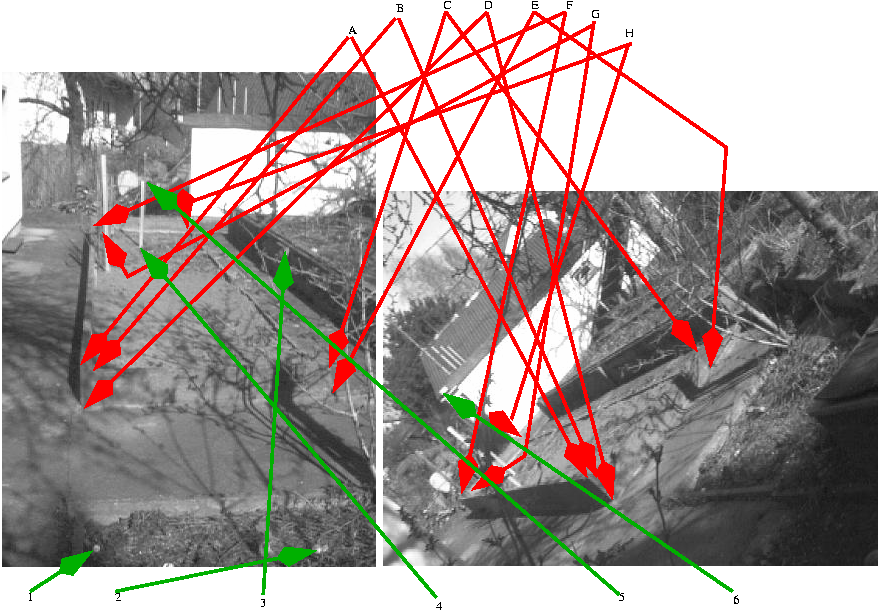
There is some old GRASS 5 software in
which does this job. It awaits integration into GRASS 6.
Tutorial: http://grass.osgeo.org/gdp/stereo-grass/index.html
GRASS 6
- Viewing existing data as stereo 3D
The d.anaglyph addon module provides an easy way to create 3D anaglyphs and stereographs. It uses the m.nviz.image module to render two viewpoints, then from those two images composes the 3D image into a single PNG file. In time it should be possible to port this functionality into NVIZ itself.
Anaglyph
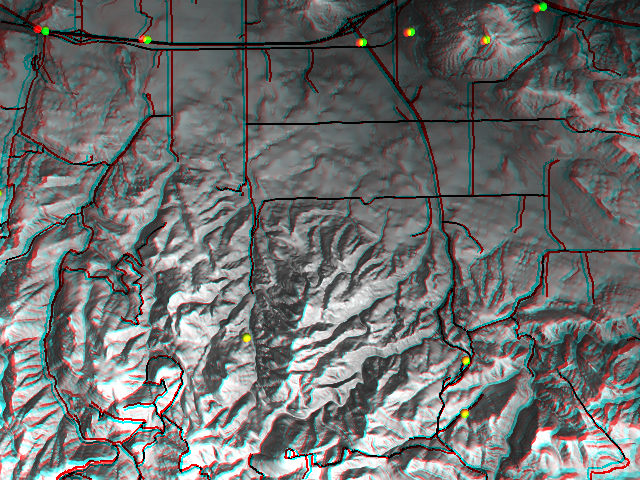 |
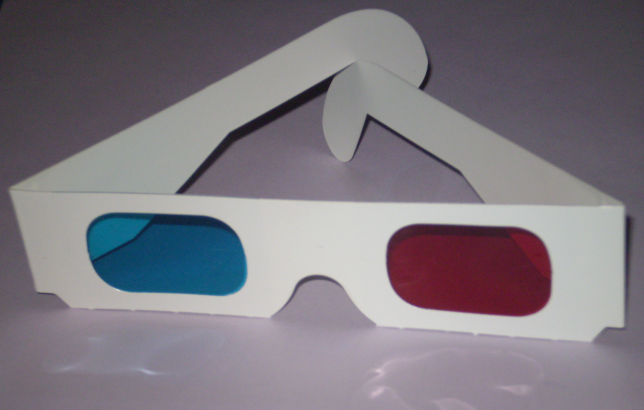 |
Stereogram
 |
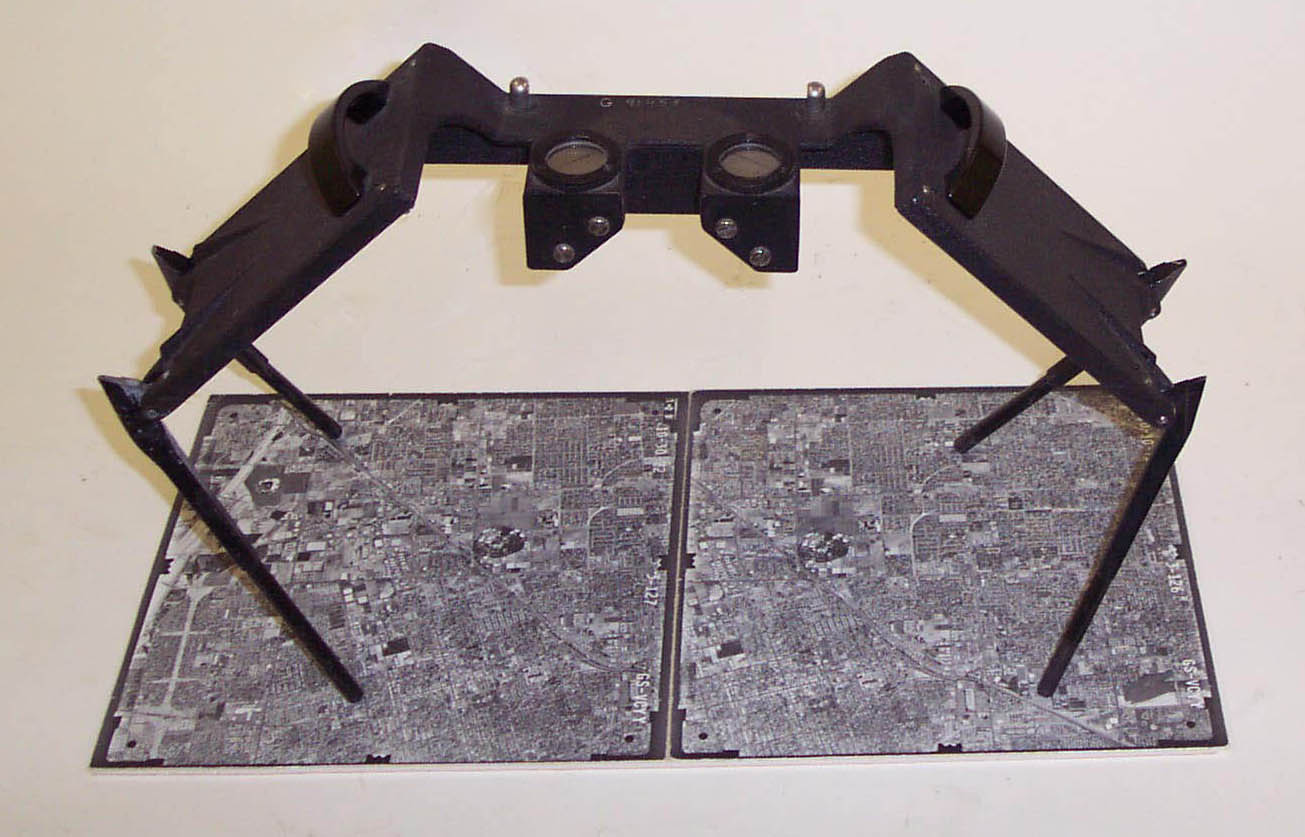 |
"Free-view" Stereogram
- No special viewing equipment needed: just cross your eyes.
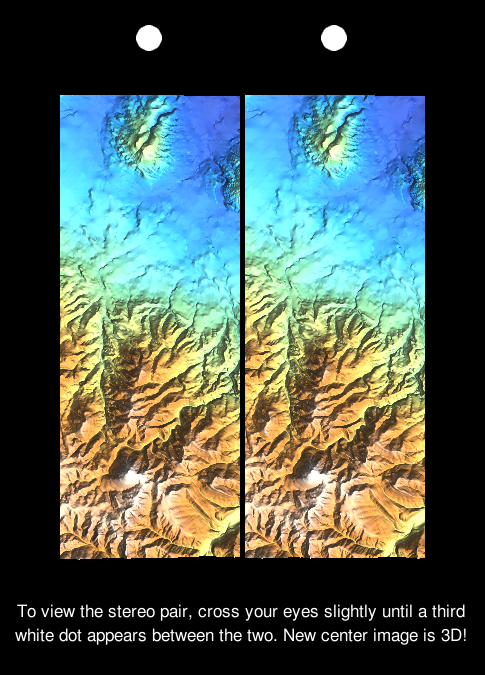
See also
- The Stereo anaglyphs wiki page
- Principles of Photogrammetry: Stereoscopic Parallax
- nasa/StereoPipeline: The NASA Ames Stereo Pipeline is a suite of automated geodesy & stereogrammetry tools designed for processing planetary imagery captured from orbiting and landed robotic explorers on other planets
- Hugin (stiches images together) and Autopano tools (finds control points in overlapping image pairs)